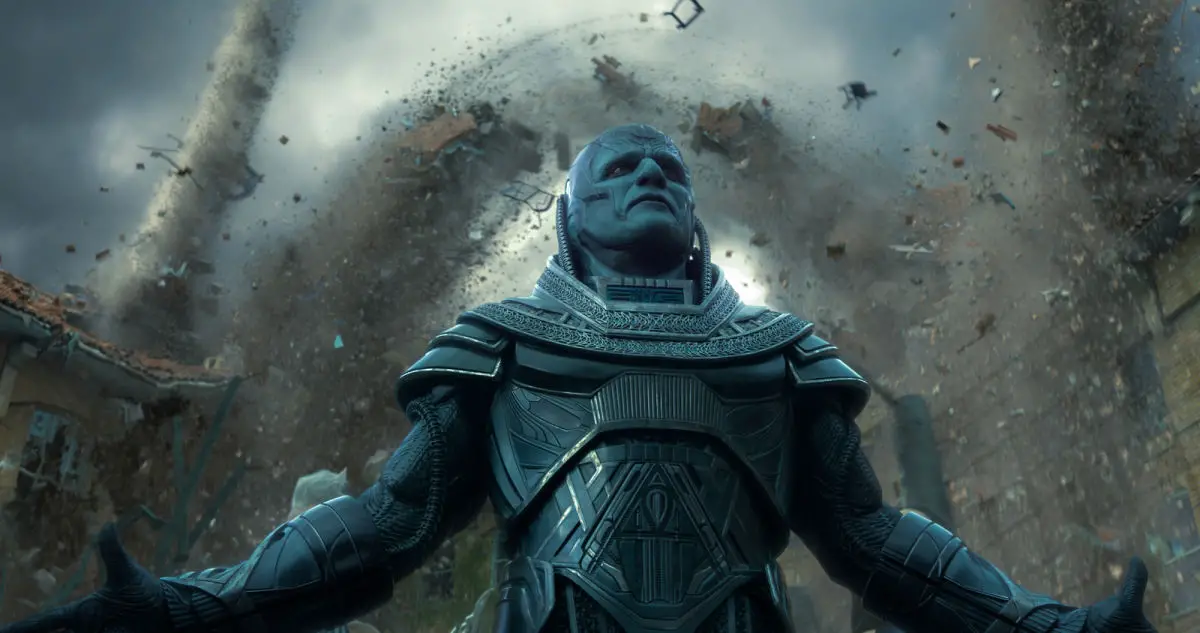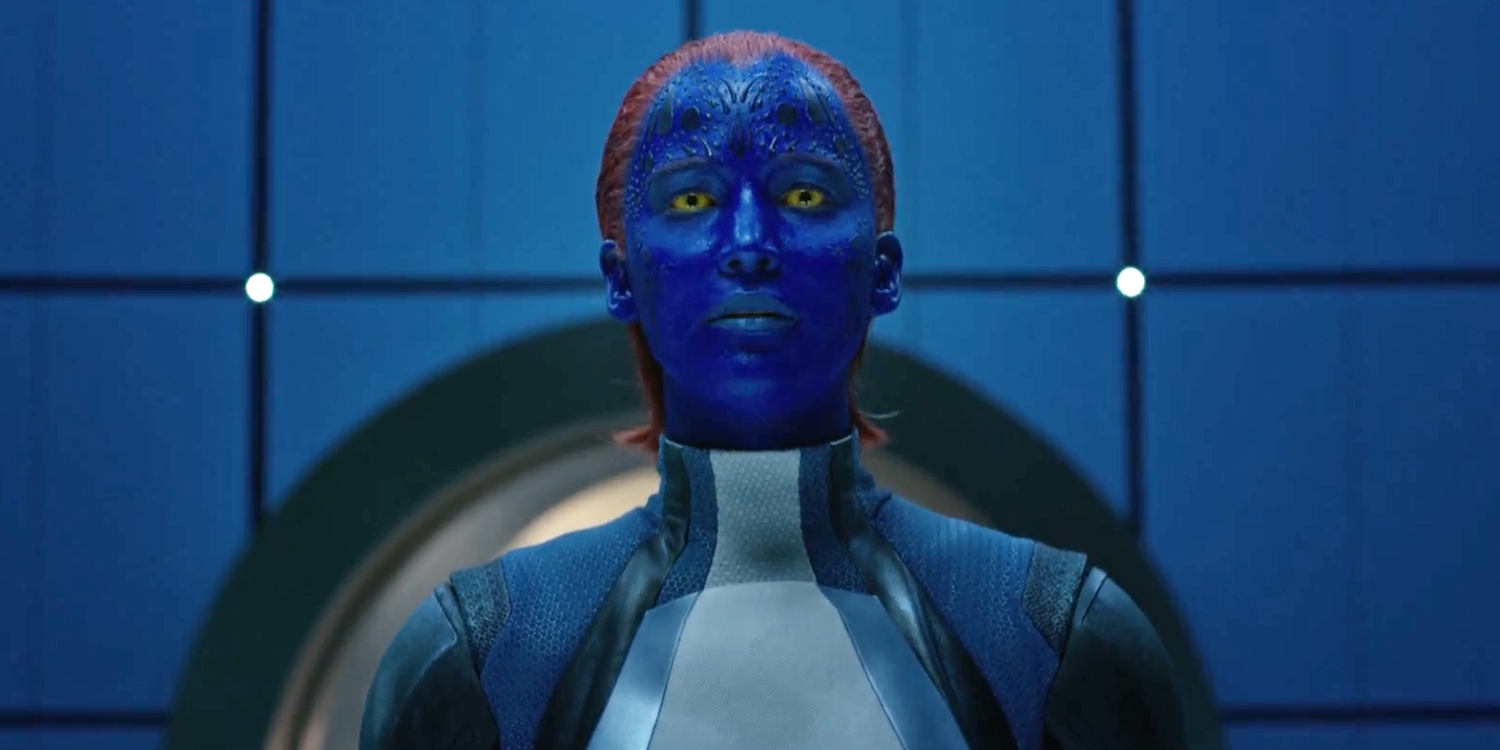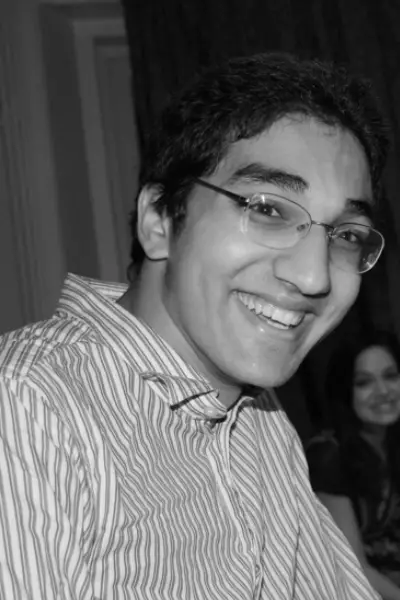After about seven (eight if you count the excellent “Deadpool”) X-Men films, I think it’s pretty safe to say that the franchise is a household name.
Everyone knows Wolverine, Professor X, Magneto etc.—they are among the Iron Mans and Hulks of the cinematic comic-book world. But after so many movies and the general stagnation of the comic film genre, can a new installment of the X-Men franchise keeps things fresh?
The answer is yes and no. I should be pretty clear here –“X-Men: Apocalypse” is a good movie, but it is certainly the weakest of the new trilogy. It has neither the fresh take that “First Class” brought nor the innovative and challenging storytelling of “Days of Future Past.” It generally sticks to a pretty formulaic narrative (with a couple twists), and what few risks it does take generally turn out poorly.
From that description, the movie sounds pretty mediocre, pretty much just an average run-of-the-mill superhero flick. Indeed, the mediocre shoe seems to fit even more snugly considering just how tepidly critics have received the film. But a lot of the disappointment comes down to unmet expectations. Like I said, “Apocalypse” is a good film. Oscar Isaac nails the role of Apocalypse — regardless of his rather silly, auto-tuned voice—and the rest of the cast really pulls their weight. Even Sophie Turner, who I had reservations about, did a damn fine job as Jean Grey, portraying both her untapped potential and general insecurity about her powers.
The veterans of the series do well, too. Michael Fassbender is as fantastic as ever, and perhaps the best sections of the movie are the ones in which Magneto’s emotional arc is at the heart of it all — his heartbreaking story could have easily come across as cheesy and clichéd, but Fassbender takes what should be shoddy writing and makes it shine.
James McAvoy does a similarly great job of portraying Professor X’s usual humanistic sympathy and, most importantly, his optimism that peaceful co-existence between mutants and humanity is not some Holy Grail, but rather the destined result of decades of trust-building and proffered olive branches.
Which brings us to the central theme of the movie. Apocalypse is back, and he sees the world — a Cold War era world with weak (read: human) leaders at the helm of the two superpowers lording around territory that he sees as rightfully belonging to him and his “children,” the mutants.
Apocalypse’s thinking very much falls into social Darwinism here — he is a god by right of his tremendous power, and mutants are rulers by right of their god-like powers. Humans, thus, are born to worship him and serve the mutants. So, seeing that the world as he knew it has essentially turned this social order upside down, he is a bit pissed.
The movie’s biggest problem is neither with Apocalypse nor the long-running theme of mutants struggling between their exploitation and their potential, but rather with the narrative structure and some of the supporting cast.
The Four Horseman — famous to anyone who grew up watching the X-Men cartoon — are poorly used: Angel and Psylocke seem to be present not out of any real character motivation, but rather because Apocalypse needs some muscle. The other two, who I won’t name out of respect for spoilers, have a larger role in the story, but only one of them actually has any tangible impact on the eventual outcome of the plot.
Apocalypse himself is not actually much better. Oscar Isaac does a great job, but the character simply doesn’t have as menacing a presence as he should. Again, this comes back to the problems with the plot—it’s a giant mess. The film’s opening takes far too long, and its first 30 minutes are a bit of a lull.
In contrast, the last third of the film cranks it up to 11 and is stuffed to the brim with action, drama and thematic undertones. In comparison to the other all-star movie that came out in May, “Captain America: Civil War,” the pacing of “Apocalypse” is all over the place, and Bryan Singer does a rather poor job of giving his equally huge cast of characters enough development and screen time.
I know a lot of us X-Men fans were really hoping that the film would really focus on Apocalypse’s struggle with the X-Men, but it seems that ultimately that conflict — both physically and ideologically — is somewhat overshadowed in favor of a certain character: Mystique.
I don’t think it would be controversial to say that while Jennifer Lawrence is a phenomenally gifted actress, she failed to play a particularly interesting or compelling Mystique. Indeed, even in the comic world the character is not among the most exciting. Which leads one to question the decision to give her a more prominent role over fan-favorites like Beast or Quicksilver.
The fact that ultimately Mystique’s role in the final plot arc is rather small makes her prominence even less understandable.
In contrast, Quicksilver’s brief scenes in the film were a blast. Not only did he offer a repeat performance of the sort of speedy spectacle that he showed off in “Days of Future Past,” but he also brought along a pretty critical emotional element. Again, the film’s writing lets its characters down—at a crucial moment in the film, Quicksilver has the opportunity to really take his role to its obvious conclusion, but for some reason the writers waste it and never bring up a rather key point of information again.
There is a similar problem with Jean Grey. Like I said, Sophie Turner did a fantastic job and she has shown that she is in no danger of being typecast as a Sansa-like character. But ultimately, it was her performance of Jean that really worked, not the character’s arc. Jean Grey, and indeed most of the younger mutant cast such as Cyclops and Nightcrawler, are relegated to the sidelines for most of the film and never really get a chance to shine.
Which brings us to the defining problem with this installment of the series. The movie is clearly intended to pass the torch to a new generation of X-Men—it is no longer going to be a story of Professor X vs. Magneto, but rather their respective protégés. Unfortunately, the movie fails to flesh out its young heirs, and instead leaves audiences wanting more.
Which is a damn shame. “Apocalypse” is a good movie, but it shouldn’t have been. It should have been a fantastic one, a proper finale to what has thus far been an awesome trilogy. Instead, it was over-stuffed, over-ambitious and irritatingly disappointing.
Regardless, if you’re a fan of the X-Men or just comic books and superheroes in general, then “X-Men Apocolypse” is definitely worth a watch.










